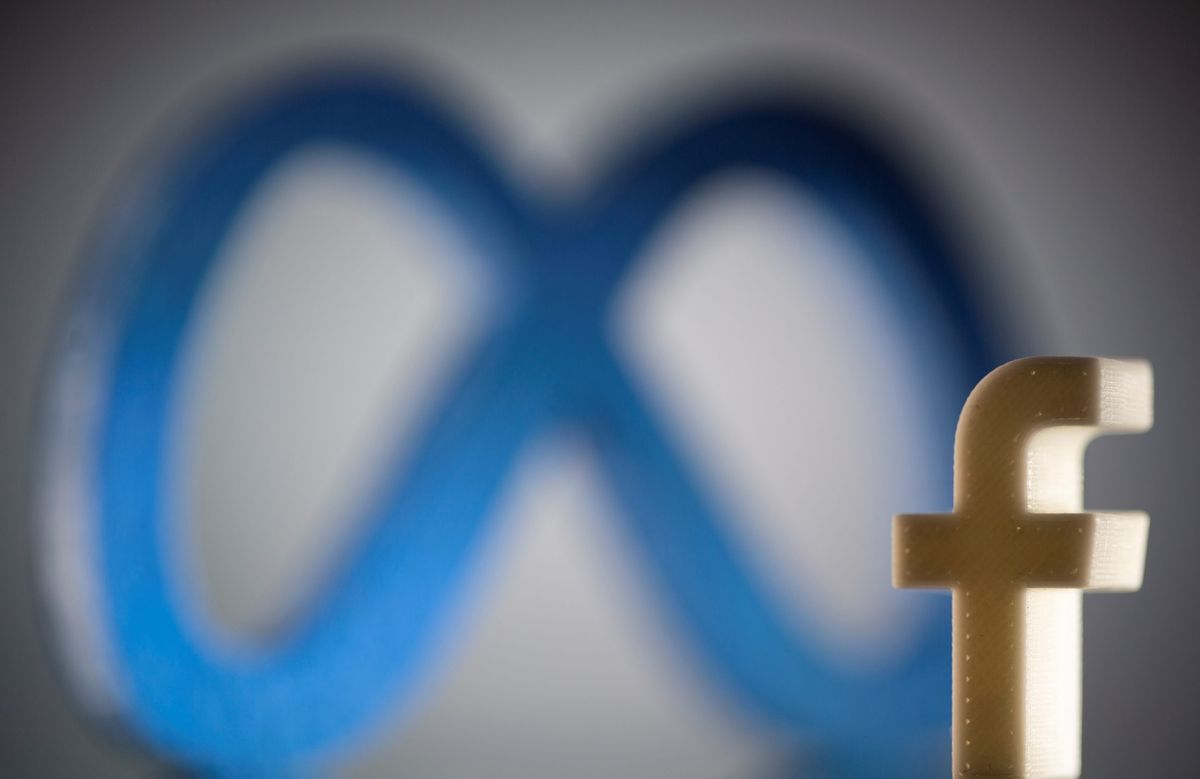What would Meta’s forced Giphy sell-off in the UK mean for other big tech companies?

A few minutes every morning is all you need.
Stay up to date on the world's Headlines and Human Stories. It's fun, it's factual, it's fluff-free.
“This is the first time the CMA has ever blocked a major digital tech deal and indicates the direction of travel for the UK regulator’s oversight of similar deals going forward. This will cause quite a lot of uncertainty for companies trying to do deals where the parties don’t actually compete but maybe could do in the future – particularly where one of them may be big in its own market.”
Who’s involved in this deal?
- Well, for starters, the biggest player in this deal is Meta Platforms Inc., formerly known as Facebook Inc.
- Now, just to be clear, Meta is the parent company that owns the social media platform Facebook, Instagram, WhatsApp and more.
- Along with these companies, Meta acquired Giphy, a search engine that allows users to find GIFs, back in May of last year.
- Meta has been fighting lawmakers and regulators for years over a range of issues, but a major one is the company’s market power.
- Basically, these regulators just think that Meta has way too much power over the tech scene, specifically social media. And so with that, regulators in the United Kingdom have decided that Meta needs to reverse its acquisition and sell off Giphy.
What did UK regulators say to Meta?
- Meta bought Giphy for US$315 million in 2020, with the company hoping that they could integrate the service with Instagram so that people could seamlessly add GIFs to their messages, for example.
- Yesterday, the UK Competition and Markets Authority (CMA) said that Meta needed to reverse the deal though, which makes this acquisition the company’s first high-profile deal officials have tried to reverse.
- “After consulting with interested businesses and organizations — and assessing alternative solutions … put forward by Facebook — the CMA has concluded that its competition concerns can only be addressed by Facebook selling Giphy in its entirety to an approved buyer," the CMA said in a statement.
- The CMA also put out a tweet that backed this statement which included a GIF of their decision.
- “By requiring Facebook to sell Giphy, we are protecting millions of social-media users and promoting competition and innovation in digital advertising," said Stuart McIntosh, who chaired the independent inquiry into the acquisition.
What does this mean for other big tech companies?
- One of the main concerns that have been brought up include the fact that both Giphy and Meta are American companies. So some are wondering whether or not the CMA would even have the ability to reverse this deal.
- But the thing is, Meta operates in the UK as well, so regulators could block the company from operating within the country if Meta doesn’t comply.
- “The CMA considers this particularly concerning given that Facebook controls nearly half of the £7 billion [US$9 billion] display advertising market in the UK," added the CMA in its statement.
- If this regulatory action does go through, though, this could also be a massive blow to big tech companies, with many of them also facing their own regulatory concerns worldwide.
- For example, Google LLC is currently facing a lawsuit over monopolistic practices from the Department of Justice (DOJ) for practices like paying companies, such as Apple, US$12 billion to ensure that Apple promotes Google as their default search engine.
- Amazon.com Inc. has been under investigation by the Indian government for monopolistic practices, with Indian government officials claiming that the company provides preferential treatment to some sellers on its platforms.
What do experts think of this situation?
- This is big news across the board, but opinions on the situation vary.
- Peter Broadhurst, a partner at law firm Crowell & Moring, released a statement saying that this deal could change the landscape of tech deals in the UK.
- “This is the first time the CMA has ever blocked a major digital tech deal and indicates the direction of travel for the UK regulator’s oversight of similar deals going forward,” said Broadhurst. “This will cause quite a lot of uncertainty for companies trying to do deals where the parties don’t actually compete but maybe could do in the future – particularly where one of them may be big in its own market.”
- Adam Kovacevich, a former Google policy official who now runs a trade association for big tech companies, believes that this deal doesn’t make sense because Giphy isn’t a monopoly.
- “I would be surprised if the UK government could find more than 50 consumers who feel more ‘protected’ today because they’ve blocked FB’s Giphy acquisition,” tweeted Kovacevich. “Giphy no more has a monopoly over GIFs than Chipotle has a monopoly over burritos.”
What’s next?
- It didn’t take long for Meta to announce that they would appeal this decision while also adding why the company believes this deal is important.
- “Both consumers and Giphy are better off with the support of our infrastructure, talent, and resources," a Meta spokesperson said. “Together, Meta and Giphy would enhance Giphy’s product for the millions of people, businesses, developers and API partners in the UK and around the world who use Giphy every day, providing more choices for everyone."
- But, regardless of how this situation turns out, it does mark the first time a regulator has ever taken this sort of action against one of these large tech companies.
You drive the stories at TMS. DM us which headline you want us to explain, or email us.







Comments ()